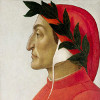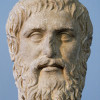“ A man may sell all that he has, and another may acquire his property; yet after the sale he may dwell in the city of which he is no longer a part, being neither trader, nor artisan, nor horseman, nor hoplite, but only a poor, helpless creature. ”
Plato, The Republic. copy citation
| Author | Plato |
|---|---|
| Source | The Republic |
| Topic | property city |
| Date | |
| Language | English |
| Reference | |
| Note | Translated by Benjamin Jowett |
| Weblink | http://www.gutenberg.org/files/1497/1497-h/1497-h.htm |
Context
“And, as we said before, under such a constitution the same persons have too many callings—they are husbandmen, tradesmen, warriors, all in one. Does that look well?
Anything but well.
There is another evil which is, perhaps, the greatest of all, and to which this State first begins to be liable.
What evil?
A man may sell all that he has, and another may acquire his property; yet after the sale he may dwell in the city of which he is no longer a part, being neither trader, nor artisan, nor horseman, nor hoplite, but only a poor, helpless creature.
Yes, that is an evil which also first begins in this State.
The evil is certainly not prevented there; for oligarchies have both the extremes of great wealth and utter poverty.
True.
But think again:”
source


